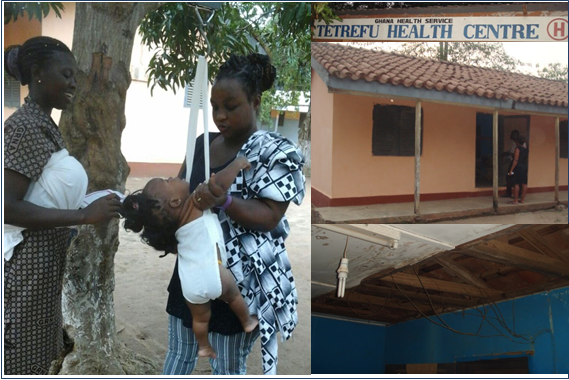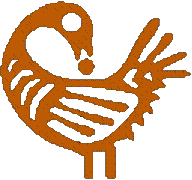
Tetrefu project: a renovated and expanded health center for better care for patients, women and newborns
A few words about the project...
 |
The small
town of Tetrefu, in the Ashanti region of Ghana, has an aging local
health center that is no longer sufficient to meet the needs of the
population. The project, initiated by local authorities, aims to modernize the center, expanding it with the construction of a new building, renovating an old building, equipping it with modern equipment, including communication. These achievements will be accompanied by actions to raise public awareness of hygiene and health, and train the staff of the center. Much of the work will be done by students of the Tetrefu Vocational Training Center (ICCES). |
Objectives
Tetrefu and its surroundings, 7000 inhabitants in rural Ashanti region
Tetrefu is a rural community in the Bosomtwe District, in the Ashanti region, about 15 minutes drive from the regional capital Kumasi, on the road to Lake Bosomtwe. The population of Tetrefu is constantly increasing: from more than 4,000 inhabitants in 2011, it is now estimated at 5,450 inhabitants.The town is served by the electricity network, and has two boreholes of drinking water and two blocks of public toilets. The territory has a primary school, a college and a technical and vocational training center. The population lives mainly from agriculture and various activities, but the lack of local opportunities leads to a high poverty rate, which particularly affects women.
At the transport level, the laterite roads are in poor condition: they become muddy and sometimes completely impassable during the rainy season.
 |
 |
A health center too old, and an insufficient capacity of reception


The CSC provides basic services to outpatient patients: curative medicine and basic care. Small surgical operations, such as incisions and drainages, are performed there. He carries out laboratory and advisory work in public health, environment, and nutrition. Health workers who provide these services meet the vast majority of community needs even before they escalate into emergencies. Complex cases and patients with serious complications are transferred to more appropriate urban structures (polyclinics, hospitals).
The facility operates under the medical responsibility of a state-certified midwife. She is supported by three nurses, two caregivers and a maintenance worker. The local management (at Bosomtwe District level) of the Ghana Health Service (GHS) is responsible for its operation, as for any public health establishment: furniture, equipment and operating costs (including salaries).
The CSC has two buildings: the oldest dedicated to pediatric consultations - maternal and child care (even family planning), with a reception room and another one of organization; the most recent, larger, has 4 areas: a delivery room, a diaper suite (equipped with the only bed in the center), a consultation and care office, a laboratory / depot pharmacy.
Today obsolete, dilapidated and saturated, the Center is not adapted to the needs of a constantly increasing population: renovation and expansion work is necessary. The Tetrefu City Council then called on SANKOFA to help it clarify its project and seek funding.
| This project receives financial support from the Yvelines
Department (YCID), the Air Liquide Foundation, and FORIM |
|||

|
 |
 |
|








